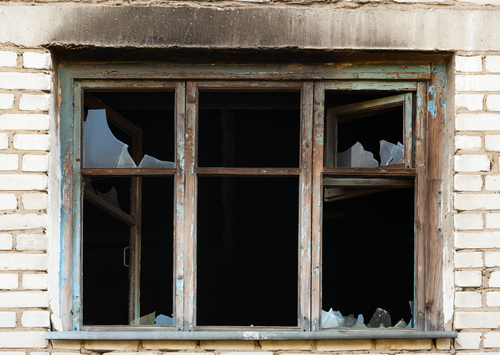When Disaster Strikes: Protecting Your Texas Property Rights
The aftermath of a natural disaster in Texas can leave homeowners overwhelmed and unsure how to recover their losses. Knowing the immediate steps to protect your property rights can make a critical difference in your recovery journey, whether you’re facing damage from hurricanes, floods, wildfires, or severe storms. Natural disasters don’t discriminate, but unfortunately, insurance companies often do when processing claims fairly. With Texas experiencing an increasing frequency of severe weather events, understanding how to navigate the property insurance landscape has never been more important for homeowners seeking to rebuild their lives.
When the storm clouds clear and you’re left picking up the pieces, don’t let insurance woes add to your burden. Contact JCE Law Group for guidance on securing the compensation you deserve. Call us at 504-754-5884 or contact us today to ensure your rights are protected, and your recovery is on track.

Understanding Your Texas Property Insurance Rights After Disaster Strikes
Texas property insurance laws provide important protections for homeowners, but many aren’t aware of their full rights when disaster strikes. Under Texas Insurance Code Chapter 542, commonly known as the Prompt Payment of Claims Act, insurance companies must acknowledge your claim within 15 days and decide within 45 days after receiving all necessary documentation. Insurance companies cannot unreasonably deny, delay, or underpay legitimate claims. The Texas Department of Insurance also requires insurers to provide a detailed explanation if they reject your claim, including which policy provisions they’re citing. Many Texans don’t realize they can dispute a denial or inadequate settlement through the appraisal process outlined in their policy before resorting to legal action. Understanding these rights is essential because insurers often count on policyholders’ lack of knowledge during the chaotic post-disaster period to minimize payouts and protect their bottom line.
Critical Steps to Take After Property Damage from a Natural Disaster
The hours and days following a natural disaster are crucial for protecting your right to fair compensation. Taking prompt, strategic action can significantly affect your claim’s success. The Texas Division of Emergency Management reported that in the 2024 hurricane season, property owners who documented damage within 48 hours received, on average, 30% higher insurance settlements than those who delayed documentation. Following these essential steps will help ensure you don’t leave money on the table when rebuilding your life.
-
Document everything immediately – Before cleaning up or making repairs, photograph and video all damage from multiple angles. Create a detailed inventory of damaged items with estimated values and dates of purchase. This documentation serves as critical evidence if your insurer disputes the extent of damage.
-
File your insurance claim promptly – Contact your insurance company within 24-48 hours. Most Texas policies have specific timeframes for reporting allegations. Request a claim number and the direct contact information for your assigned adjuster. Be sure to note the name of everyone you speak with and keep detailed records of all communications.
-
Make emergency repairs only – While you should take reasonable steps to prevent further damage (like covering broken windows or removing standing water), avoid making permanent repairs until your insurance adjuster has inspected the property. Save all receipts for emergency repairs as these are typically reimbursable.
-
Prepare for and attend the insurance adjuster’s inspection – Be present when the adjuster visits your property. Provide your damage documentation and report all affected areas. Be aware that first-offer settlements from Texas insurers after major disasters are frequently 40-60% below what policyholders are entitled to receive.
-
Review your settlement offer carefully – Don’t rush to accept the first offer. Compare it against your policy coverage limits and documented losses. If the offer seems low, request a written explanation of how the settlement amount was calculated and which policy provisions were applied.
Getting Fair Compensation: When to Seek Help from a Texas Property Insurance Lawyer
Unfortunately, the insurance claim process often becomes adversarial after major disasters, as companies face enormous financial pressure from widespread claims. If your claim has been denied, significantly delayed, or underpaid, it may be time to consult a Texas property insurance lawyer. At JCE Law Group, we’ve observed that insurance companies frequently change their tactics after legal representation becomes involved. Many insurers rely on complex policy language, unreasonable demands for documentation, and lowball settlement offers to discourage policyholders from pursuing their full benefits. A qualified Texas property insurance attorney can evaluate whether your insurer is acting in bad faith and help level the playing field. Most importantly, understanding the potential for additional damages under Texas law—including penalty interest, attorney fees, and, in some cases, punitive damages—can provide crucial leverage in negotiations. The goal isn’t necessarily litigation but ensuring you receive the fair treatment and full compensation your policy promises.
Types of Natural Disaster Damage Covered by Texas Property Insurance
Understanding what your specific policy covers is essential to maximizing your recovery. Standard homeowners insurance in Texas typically covers damage from wind, fire, hail, lightning, and explosions. However, many homeowners are surprised to learn that flood damage is explicitly excluded from standard policies and requires separate flood insurance. Similarly, damage from earthquakes, landslides, and sinkholes usually requires additional coverage. Wind damage from hurricanes is often subject to an individual, higher deductible in coastal areas. The distinction between wind and flood damage becomes particularly contentious after hurricanes—if wind damages your roof, allowing rain to enter, that’s typically covered, but if rising floodwaters damage your home, that’s excluded without flood insurance. This distinction often becomes a major point of contention in insurance disputes following major storms.
Special Considerations for Different Types of Natural Disasters
Each type of natural disaster presents unique insurance challenges. Hurricane claims often involve disputes over whether the damage was caused by wind (covered) or flood (not covered under standard policies). Wildfire claims typically face fewer coverage disputes but may involve substantial disagreements about the value of lost personal property. Tornado damage claims frequently involve total losses where replacement cost versus actual cash value becomes critically important. In our experience handling catastrophic property damage cases in Texas, we’ve found that insurance companies often train adjusters to identify specific “exclusion opportunities” for each disaster type, looking for ways to minimize payouts even when the damage should be covered.
Dealing with FEMA and Additional Disaster Assistance in Texas
Beyond private insurance, disaster victims in Texas may qualify for additional assistance through the Federal Emergency Management Agency (FEMA) and other programs. FEMA assistance becomes available when a federal disaster is declared, providing grants for temporary housing, emergency home repairs, and other disaster-related expenses not covered by insurance. In 2024, FEMA increased its maximum Individual Assistance grant to $41,000 per household, though the average grant typically ranges between $5,000 and $7,000. Texas also offers additional resources available to businesses and homeowners through the Texas Division of Emergency Management, including low-interest disaster loans through the Small Business Administration (SBA). These programs can provide crucial supplemental funding but should be viewed as complementary to, not replacements for, insurance coverage.
Coordinating Multiple Sources of Recovery
Managing multiple sources of disaster recovery funding requires careful coordination. If you receive both insurance compensation and FEMA assistance for the same damage, you may be required to return the FEMA funds. However, FEMA can help with needs not covered by insurance—like temporary housing while your home is uninhabitable, even if your property damage will eventually be covered by insurance. Keep meticulous records of all applications, communications, and funds received from each source. Timing also matters—while you should apply for FEMA assistance promptly after a disaster, you may need to update FEMA about your insurance claim status as it progresses. This coordination becomes especially important when insurance claims are delayed or disputed.
Common Insurance Company Tactics After Texas Natural Disasters
After major disasters, insurance companies often deploy specific strategies to minimize payouts across thousands of claims. Being aware of these tactics can help you protect your rights. One common approach is the “delay, deny, defend” strategy—where insurers deliberately prolong the claims process hoping policyholders will accept less out of desperation. Another tactic involves sending multiple adjusters to reinspect property, each providing a lower estimate than the last. Some insurers attribute damage to pre-existing conditions or maintenance issues rather than the disaster. Others misrepresent policy provisions or demand excessive documentation that’s difficult to provide after a disaster. Perhaps most concerning is when insurers pressure contractors to reduce repair estimates or use inadequate pricing software that doesn’t reflect post-disaster construction cost increases.
Recognizing and Responding to Bad Faith Insurance Practices
Texas law recognizes that insurance companies have a duty of good faith and fair dealing toward policyholders. Bad faith practices include unreasonable delays, failing to conduct thorough investigations, misrepresenting policy provisions, and making lowball settlement offers without reasonable justification. Document every interaction meticulously if you suspect your insurer is acting in bad faith. Request all communications in writing, including explanations for claim decisions. Consider having your property independently assessed by qualified contractors or public adjusters. If these issues persist, a Texas property insurance lawsuit may be necessary to compel fair treatment and potentially recover additional damages for bad faith conduct, including penalty interest, attorney fees, and in egregious cases, punitive damages.
Frequently Asked Questions
1. How long do I have to file a property damage claim in Texas after a natural disaster?
While Texas property insurance policies typically require “prompt” notification of loss, most specify a deadline between 30-60 days. However, after declared disasters, many insurers extend these deadlines. Regardless, you should file your claim as soon as possible—ideally within days of the disaster—to avoid any potential deadline issues. Be aware that the statute of limitations for filing a Texas property insurance lawsuit is generally two years from the date your claim was denied or when the insurer breached the policy terms.
2. Can a Texas property insurance attorney help if my claim has already been denied?
Yes, a Texas property insurance lawyer can often help even after a denial. Insurance companies frequently reverse or revise their position once legal representation becomes involved. An attorney can identify reasons for improper denial, help gather additional supporting evidence, and potentially negotiate a fair settlement without litigation. They can also file a Texas property insurance lawsuit to challenge the denial if necessary. Many denials are based on questionable interpretations of policy language or inadequate investigations that can be effectively contested with proper legal assistance.
3. What should I do if the insurance adjuster’s damage estimate seems too low for repairs in Houston?
If you receive an undervalued estimate, first obtain independent repair estimates from licensed contractors to establish the true cost of repairs. Then submit these estimates to your insurance company with a detailed explanation of why their estimate is insufficient. Suppose the insurer still refuses to adjust their offer. In that case, you have several options: request a re-inspection with a different adjuster, invoke the appraisal clause in your policy (which creates a binding process to resolve valuation disputes), file a complaint with the Texas Department of Insurance, or consult with a property insurance lawyer in Texas to evaluate potential legal remedies.
4. How does the Texas property insurance process work for renters versus homeowners?
While homeowners insurance covers the structure and personal belongings, renters insurance only covers personal property. After a disaster, renters follow similar claim steps: document damage, report the claim promptly, and itemize lost possessions. However, renters aren’t responsible for structural repairs—that’s the landlord’s obligation under their property insurance. Renters should also know that their policy may provide coverage for temporary housing if their rental becomes uninhabitable. One important difference is that landlords have no obligation to provide temporary housing for displaced tenants unless specifically required by the lease agreement.
5. What additional compensation might I be entitled to beyond my policy limits in a Texas disaster insurance claim?
Texas law provides additional compensation beyond policy limits if your insurer mishandles your claim. Under the Texas Insurance Code, you may be entitled to recover penalty interest (currently 18% annually on delayed claim amounts), attorney’s fees, and in cases of knowing violations, up to three times the amount of actual damages. You might recover these excess costs if temporary housing costs exceed your policy’s Additional Living Expense limits due to unreasonable claim delays. While these remedies aren’t automatic, they provide important leverage when negotiating with insurers who aren’t treating policyholders fairly.
Work with a Property Insurance Lawyer
Navigating the aftermath of a natural disaster while dealing with complex insurance claims can be overwhelming. A property insurance lawyer in Texas can evaluate your policy, identify coverage that may not be obvious, develop strategies to counterclaim denials or underpayments, and handle all communications with your insurer. This allows you to focus on rebuilding your life while protecting your legal rights. Most property insurance attorneys work on a contingency fee basis, meaning they only get paid if they recover your compensation. During the initial consultation, the attorney should clearly explain how your case will be handled and the potential outcomes, and answer any questions about the Texas property insurance process. Remember that having legal representation often changes how insurance companies respond to claims, frequently resulting in faster and more favorable resolutions for policyholders facing difficult claim situations.
When disaster strikes and you’re left to pick up the pieces, don’t let the insurance maze add to your woes. Connect with JCE Law Group to ensure you’re on the right path to securing the compensation you deserve. Call us at 504-754-5884 or contact us today to safeguard your rights and streamline your recovery process.


